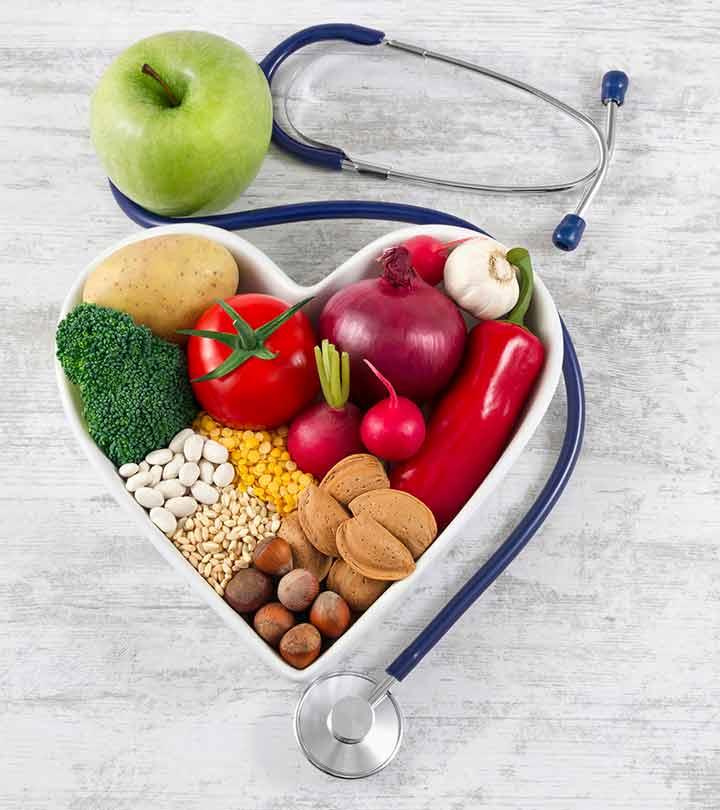Our eating habits directly determine our health.
In our busy schedules and fast lives, we often end up eating as per convenience, rather than what is healthy. Many a times, we eat to please our taste buds, but remain quite unaware about the health hazards that this type of eating habit might pose.
In a bid to lose weight, we also end up cutting out a few essential ingredients from our diet. This, instead of making us healthier, does the exact opposite. Every element is needed for your body, whether it is vitamins, minerals, proteins, carbohydrates, fibers or even fat (although choose the healthy ones). Each of these nutrients has their own individual roles to play in the physical and mental development.
In our busy schedules and fast lives, we often end up eating as per convenience, rather than what is healthy. Many a times, we eat to please our taste buds, but remain quite unaware about the health hazards that this type of eating habit might pose.
In a bid to lose weight, we also end up cutting out a few essential ingredients from our diet. This, instead of making us healthier, does the exact opposite. Every element is needed for your body, whether it is vitamins, minerals, proteins, carbohydrates, fibers or even fat (although choose the healthy ones). Each of these nutrients has their own individual roles to play in the physical and mental development.
Effects Of Wrong Eating Habits:
An immediate effect of the wrong choice of food on our health is excessive weight gain within a short span of time, or obesity. Next in line are problems like diabetes, heart diseases, high blood pressure, low weight, weak bones or maybe even slow brain development. It is imperative to eat healthy and eat right in order to stay healthy.What Is Healthy Eating?
Healthy eating does not mean having only boiled meals, eating less, or saying no to fat. Healthy food habits mean nutritious eating, i.e. eating everything in the right amount and right way. Don’t completely exclude fats or overdo the fibers and proteins! Also remember that children should be given a mix and match of all types of food because this is the age for physical and mental development.Why Should We Eat Healthy Food?
- What we eat provides all the essential nutrients to our body. This supplies our body with the right amount of energy to do our daily work. And all these nutrients come only from healthy food, not anything and everything we eat.
- Healthy food is needed to stimulate the growth hormones that will increase our height gradually with age.
- Healthy food is also needed for the functioning of our system. All the nutrients derived from healthy food trigger body cells and brain cells to actively run and perform their task.
- Healthy food improves the immune system, preventing you from falling sick easily. A strong immunity fights against all disease bearing bacteria and viruses.
- It is generally advised to cut out fat from our diet. This is often mistaken as entirely excluding even healthy fats. The unhealthy fats that should not be eaten are called saturated, and trans- fats. Mono unsaturated fats, poly unsaturated fats, omega 3 and omega 6 fatty acids are very important for our health, just like proteins and vitamins. These fats get stored under skin cells which get transformed into energy required for physical and mental activities. It is important that we include these in our diet.
- Healthy food can help you maintain a well-shaped body without falling into the evil trap of weight gain or obesity.
Different Nutrients And Their Importance:
Let’s see in detail the importance of all these nutrients in our diet:
1. Proteins:
A very important nutrient that should be included in our daily diet.- Proteins are needed to build up new tissues and renew old tissues.
- It protects the muscles which are non-fat tissue mass.
- Proteins are also needed for the production of enzymes and hormones that control the various functions of our body.
Sources
- All dairy products
- Meat
- Fish
- Eggs
- Pulses
- Soya
2. Carbohydrates:
The ultimate energy sources for your body, carbohydrates are the power suppliers to your body.- Energy is needed in large quantities in adolescents and adults.
- It is essential for your growth and development, to increase the metabolic rate and helps you remain active throughout the day.
- Intake of enough amounts of carbohydrates in food prevents the conversion of proteins into fat.
- Potatoes
- Bread
- Various grains
3. Fat:
Get rid of the misconception that you don’t need fats in your diet.Fats are very important in your diet, although they should be only the unsaturated fats and omega-3 and 6 fats. Below are some reasons why fat is so important for us:
- Fats provide energy
- They form cell membranes
- Some vitamins like Vitamins A, E, D and K need fat to get soluble.
- They produce hormones.
- Fats form a layer beneath our skin protecting muscles and at the same time provide warmth to our body.
- Nuts and seeds.
- Replace your normal cooking oil with olive oil or canola oil.
4. Vitamins And Minerals:
These nutrients are essential for our body although in smaller quantities compared to proteins and carbohydrates. Although in small amounts, they should be a part of our daily diet and deficiency of any of them may lead to serious health problems.5. Fiber:
Fibers are needed to normalize our bowel movements. They also help prevent some serious chronic diseases like cardiovascular conditions, cancer and diabetes.6. Iron:
It is an essential nutrient that helps to maintain our hemoglobin level, develop brain cells and increases concentration.7. Calcium:
It develops teeth and bones and strengthens them, preventing them from fracture. Good calcium intake in our diet also prevents the chances of developing osteoporosis.Make sure you include these healthy ingredients in your diet to have a wholesome meal and get a healthy you!
Hope you liked this article highlighting the importance of healthy foods! Share you experience in the comment section given below:
Source Click here



Comments
Post a Comment